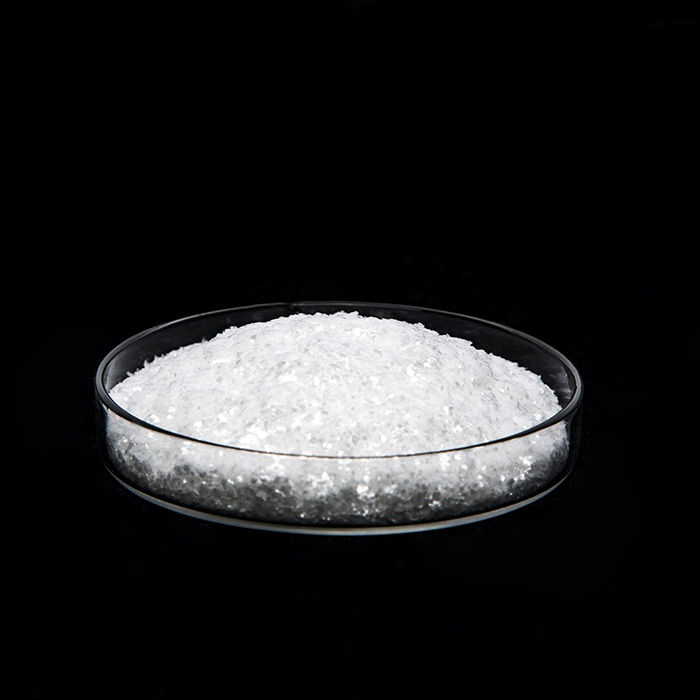Sodium Methylallyl Sulfonate (SMAS) is an organic sulfonate compound with the chemical formula CH₂=C(CH₃)CH₂SO₃Na, belonging to the class of olefin sulfonates. Below is a detailed introduction to this substance:
1. Basic Properties
- Chemical Name: Sodium Methylallyl Sulfonate (or Sodium 2-methyl-2-propene-1-sulfonate)
- CAS No.: 1561-92-8
- Molecular Weight: 158.15 g/mol
- Appearance: White crystalline powder or granules
- Solubility:
- Highly soluble in water
- Slightly soluble in ethanol and DMSO
- Insoluble in most organic solvents (e.g., benzene, ether)
- Stability:
- Stable at room temperature but may decompose at high temperatures (>250°C), releasing gases such as SO₂ and CO.
- Exhibits strong hydrophilicity and anionic surface activity.
2. Main Applications
(1) Polymer Synthesis (Third Monomer for Acrylonitrile Copolymerization)
- Used as a third monomer in polyacrylonitrile (PAN, acrylic fiber) production to improve dyeability, heat resistance, and flexibility of the fibers.
- Applied in water-based acrylic resins and emulsion polymerization to enhance water solubility and stability.
(2) Concrete Additives
- Serves as an intermediate for polycarboxylate superplasticizers (PCEs), used in high-performance concrete to improve fluidity and strength.
(3) Other Industrial Uses
- Paper Industry: Acts as a dry-strength agent.
- Water Treatment: Functions as a scale inhibitor or dispersant.
- Textile Auxiliaries: Enhances dyeing and antistatic properties of fibers.
3. Safety & Storage
- Toxicity: Low toxicity but may cause mild irritation to eyes, skin, and respiratory tract.
- Protective Measures: Wear gloves, goggles, and dust masks when handling.
- Storage Conditions: Store in a cool, dry place in a sealed container, away from oxidizers.
4. Synthesis Method
Industrially, it is typically produced by the reaction of methylallyl alcohol with a sulfonating agent (e.g., NaHSO₃):CH2=C(CH3)CH2OH+NaHSO3→CH2=C(CH3)CH2SO3Na+H2OCH2=C(CH3)CH2OH+NaHSO3→CH2=C(CH3)CH2SO3Na+H2O
5. Related Compounds
- Analogues:
- Sodium Allyl Sulfonate (SAS)
- Sodium Styrene Sulfonate (SSS)
- Difference: Due to the presence of a methyl group (-CH₃), SMAS has greater steric hindrance, which may affect polymerization reactivity.
If more specific application examples or technical parameters are needed, feel free to ask!




